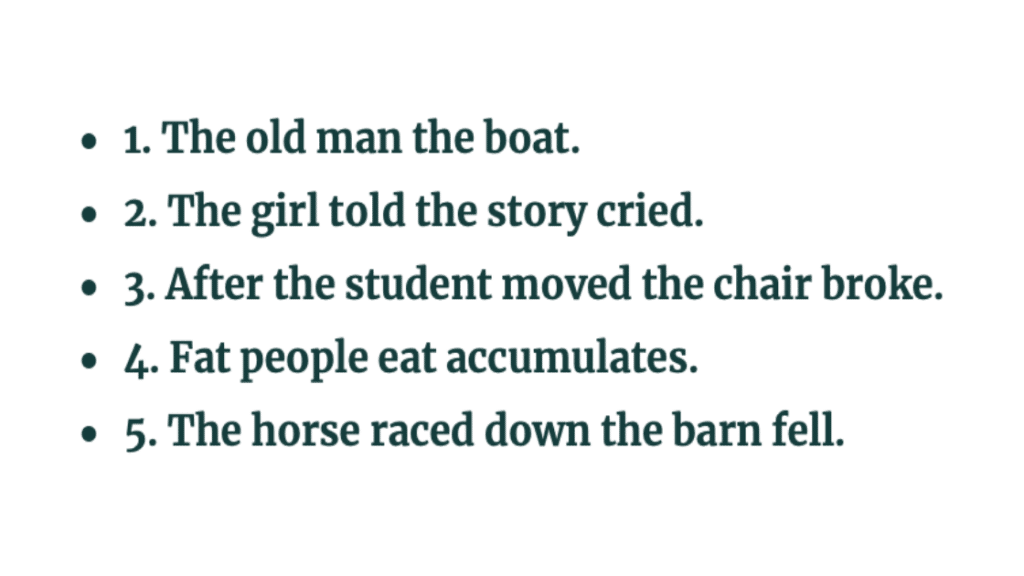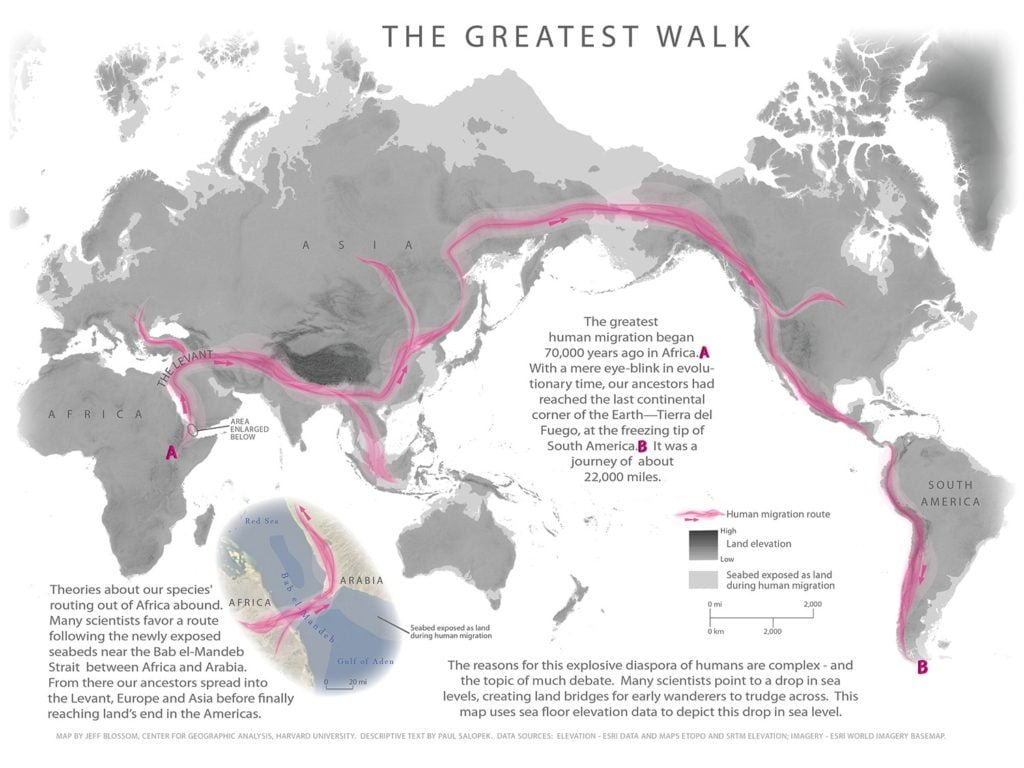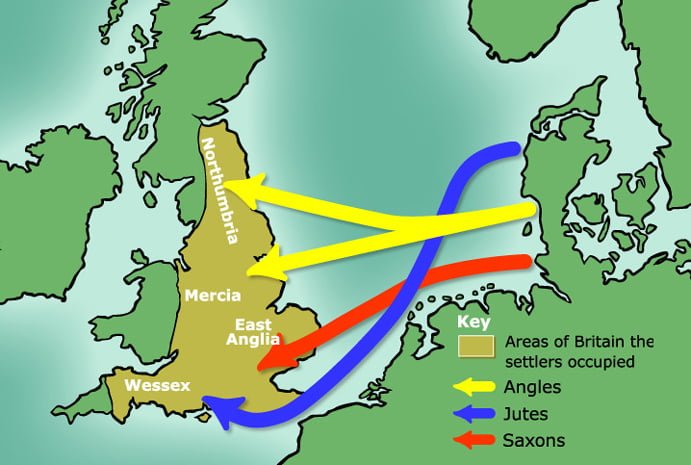What if I told you that you have a blueprint for speaking a certain language? When you come across a grammatical sentence that matches our blueprint, you easily process it and accept it as a sentence that belongs to your (native) language. But, when you come across an ungrammatical sentence that doesn’t match the blueprint, you rule it out, as simple as that. However, sometimes some grammatical sentences in disguise mess with the blueprint and they challenge us cognitively. They are perfectly grammatical but generally not acceptable as they initially seem incorrect; they lead us down a garden path. Incidentally, these sentences are called garden-path sentences.
Let’s see some examples of garden-path sentences. I want you to take a good look at them:
- 1. The old man the boat.
- 2. The girl told the story cried.
- 3. After the student moved the chair broke.
- 4. Fat people eat accumulates.
- 5. The horse raced down the barn fell.
- 6. The complex houses married and single soldiers and their families.
The reason why our blueprint doesn’t accept these sentences is that they require a lot of time to process, something that our blueprint generally avoids given the automaticity and spontaneity of language. Trying to process these sentences without parsing is like finding one’s way in a maze. Once these sentences are parsed, they become readily interpretable. Let’s look at each one individually.
1. The old man the boat.
This sentence can be paraphrased simply as “the elderly people control the boat”. But, what exactly caused us to not initially recognize it as such? This happened because we initially analyzed ‘old’ as an adjective describing ‘man’, something that we thought is a noun. As you go on processing the rest of the sentence, you don’t seem to find any verb, which ultimately leads you to rule the sentence out. We processed this sentence as in the tree diagram below:
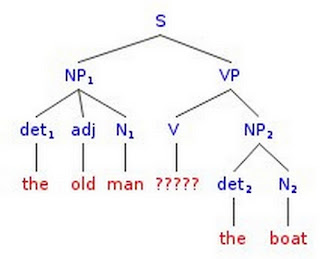
To get the proper reading of this sentence, you need to rewind your processing and reinterpret ‘man’ as the verb of the sentence and the ‘the old’ as a collective noun which functions as the subject of the sentence. In other words, ‘the boat is manned by the old (people)’. Our blueprint is satisfied now, as it processed the sentence with no question marks, as in the following tree diagram:
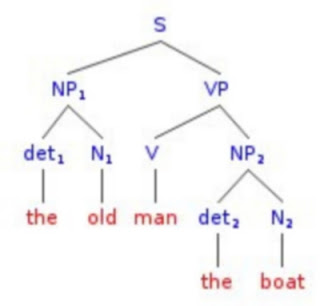
2. The girl told the story cried.
I guess this is a fairly easy one. What creates confusion in this sentence is the part ‘told the story’. This is an intervening subordinate clause that makes the sentence hard to process, because we think that ‘told’ is the main verb of the sentence, and as soon as we reach ‘cried’ we find ourselves at a dead-end. To make it readable to our blueprint, it has to be paraphrased simply as ‘the girl who was told the story cried’. The processing of this sentence proceeds as follows:
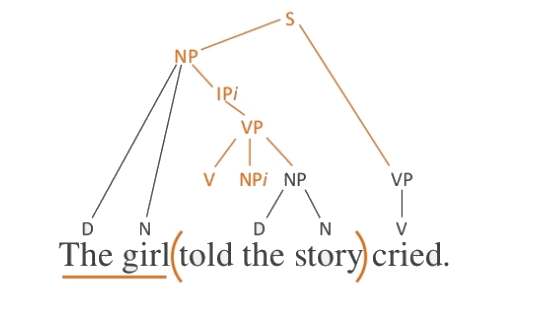
3. After the student moved the chair broke.
In this sentence, we initially interpret the noun phrase ‘the chair’ as the object of the verb ‘moved’. When we arrive at ‘broke’, we were already led down a garden path, and our interpretation of the sentence crashes. In order to get the proper reading of this sentence, ‘the chair’ should be reanalyzed as the subject of the verb ‘broke’. Just add a comma after ‘moved’ and all the confusion will clear: ‘after the student moved, the chair broke’. But in speech there are no commas, are there?
4. Fat people eat accumulates.
Paraphrase this sentence as ‘the fat that people eat accumulates in their bodies’, and give your brain a rest. But, how were we not able to accept it at first? Okay let me break it down for you! Initially, we analyzed ‘fat people’ as the subject of the verb ‘eat’, and by the time we reached ‘accumulates’, we were already at a dead-end, since our blueprint couldn’t find any object nor subject of ‘accumulates’. It’s only when ‘fat’ is reanalyzed as the subject of ‘accumulates’, and ‘people eat’ as subordinate clause modifying ‘fat’, then we could properly process the sentence.
5. The horse raced down the barn fell.
I guess you are already familiar with this one. In this sentence we are misled into analyzing the ‘horse’ as the main subject and ‘raced’ as the main verb. As soon as we reach ‘fell’ we trace back our steps and reanalyze ‘raced’ as a verb in a subordinate clause that modifies ‘the horse’. The sentence has this reading: “the horse that was raced past the barn fell”. This is illustrated in the following gif:
I will let you tweak your mind with the last example. See if you can find your way inside the garden path. Here are more examples:
- The complex houses married and single soldiers and their families.
- The florist sent the flowers was pleased.
- The man whistling tunes pianos.
- I convinced her children are noisy.

